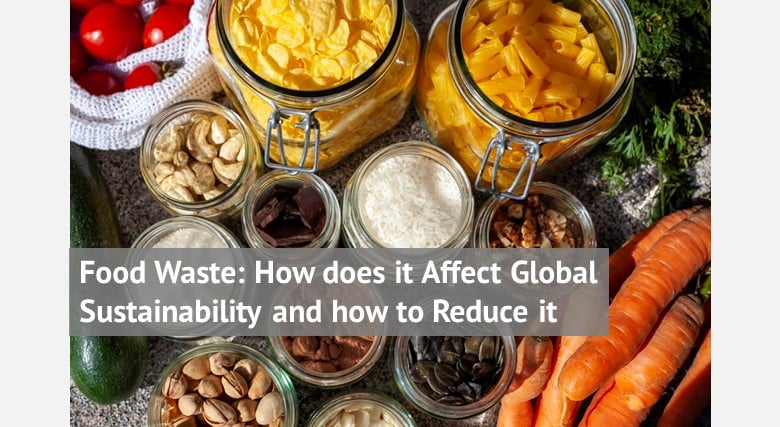Global food waste is a chronic issue that has tremendous financial, environmental and ethical implications. That food waste is a serious problem the world must deal with….. yesterday: an estimated 1.3 billion tons of food (one third of all food produced for human consumption) is wasted globally each year, while world hunger is on the rise and 1 in 9 people is undernourished. The financial costs of food wastage are substantial and amount to about USD 1 trillion each year. Also, the food that is lost and wasted each year accounts for an estimated 8% of annual GHG emissions, consumes a quarter of all water used by agriculture, and requires an agricultural area the size of China. In addition to the above, throwing away food is considered by many as unethical.
What is food waste?
The production and distribution of food in an ever more networked world indicate a long journey from farm to table through which food is lost or wasted at every stage. Even though “food waste” and “food loss” are commonly used terms, they do not have the same meaning:
- Food loss refers to food that is lost along the food supply chain from harvest up to, that is in earlier stages of production such as harvest, storage and transportation.
- Food waste occurs at the retail and consumption levels and refers to food that is fit for human consumption but thrown away, often at supermarkets or by consumers.
In developing countries food waste and losses occur mainly at early stages of the food value chain and can be traced back to financial, managerial and technical constraints in harvesting techniques as well as storage and cooling facilities. On the other hand, in medium- and high-income countries food is wasted and lost mainly at later stages in the supply chain where the behavior of consumers plays a critical role.
How to reduce food waste?
Reducing food loss and waste is critical to tackling the environmental and social issues. Reducing food loss and waste can help the fight against climate change and can aid in creating zero hunger world. The importance of reducing food loss and waste can be seen in a way how this issue is integrated into the Sustainable Development Agenda. Namely, Sustainable Development Goal 12 is designed to ensure sustainable consumption and production patterns while Sustainable Development Goal 2 is designed to tackle the issue of hunger and end it.
In this respect, the Global Action Agenda has been designed to aid the reduction of food loss and waste and the realization of the Sustainable Development Goal 12.3 that is to halve per capita global food waste at the retail and consumer levels and reduce food losses along production and supply chains, including post-harvest losses by 2030. The Global Action Agenda is designed to guide businesses, governments, civil society, and other actors in the food supply chain who can play a role in tackling food loss and waste, individually and collectively.
The Agenda proposes “a simple but effective “Target-Measure-Act” approach to reducing food loss and waste” that should be adopted and implemented by governments and companies:
- Set targets: Targets set ambition, and ambition motivates action. Governments and companies should therefore adopt an explicit food loss and waste reduction goal aligned with Sustainable Development Goal 12.3—a 50 percent reduction by 2030.
- Measure your food loss and waste: Quantifying food loss and waste within borders, operations, or supply chains can help decision-makers better understand how much, where, and why food is being lost or wasted. Governments and companies should therefore start to measure their food loss and waste and monitor progress over time.
- Take action: Reducing food loss and waste at scale will require numerous actors in the food supply chain to implement a variety of context specific interventions. Governments, companies, farmers, citizens, and others should immediately get moving on implementing their respective to-do lists.
The importance of reducing food waste
Reducing food loss and waste can help meet the UN Sustainable Development Goals (SDGs) by 2030, contribute to the Paris Agreement on climate change, and sustainably feed the planet by 2050. Yet, the realization of this objective will require the mobilization of all actors through the whole process of food production and distribution. Goals of resolving the issue of food loss and waste and ending hunger go hand in hand and can be managed together successfully. And it all comes down to our personal responsibility and individual actions: What does each one of us do, to combat food waste? A small action can make a big difference!
Photo by Jasmin Sessler on Unsplash

